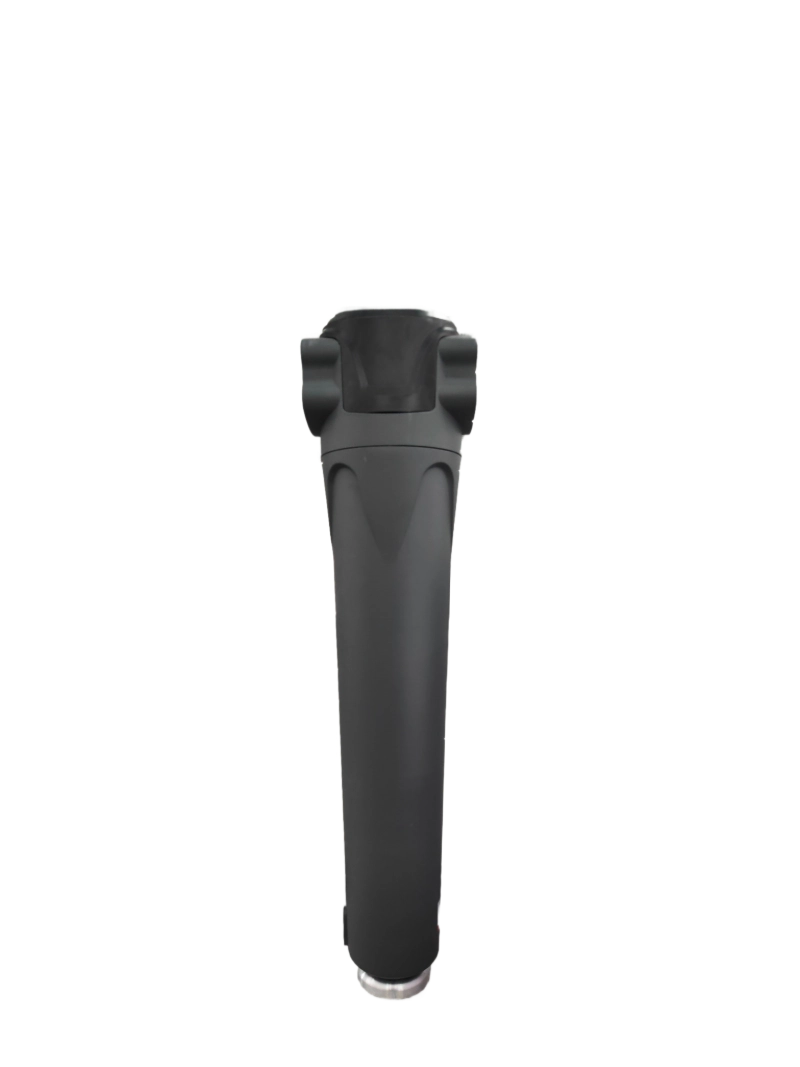- This topic is empty.
-
AuthorPosts
-
2025-08-22 at 3:59 pm #7385
In industrial environments, compressed air is one of the most widely used power sources. However, untreated compressed air contains dust, oil vapors, and moisture, which can damage equipment and compromise product quality. The aluminum alloy compressed air filter has emerged as a crucial solution to ensure air purity, offering durability, efficiency, and reliability. Compared with traditional steel or plastic filters, aluminum alloy designs strike the perfect balance between lightweight construction and high-pressure resistance, making them a preferred choice across industries. In this blog post, as a high performance compressed air filter element manufacturing factory, YUANMEI will share the function of aluminum alloy compressed air filter for sale, its advantages, applications, etc.
Why Choose Aluminum Alloy for Compressed Air Filters?
The material selection in compressed air filtration systems plays a significant role in performance. Aluminum alloy compressed air filters stand out due to several unique benefits:
-
Corrosion Resistance: Aluminum alloys naturally form an oxide layer that prevents corrosion, ensuring long-term use even in humid environments.
-
Lightweight Yet Strong: The density of aluminum is about one-third that of steel, reducing installation burden without compromising strength.
-
Heat Dissipation: Aluminum efficiently conducts and dissipates heat, reducing the risk of overheating during long filtration cycles.
-
Extended Service Life: High durability leads to fewer replacements, lowering maintenance costs.
By integrating aluminum alloy into filter housings, manufacturers achieve both high structural integrity and operational efficiency.
Core Function of Aluminum Compressed Air Filter
At its core, an aluminum compressed air filter is designed to remove solid particles, oil aerosols, and water droplets from compressed air lines. The process typically includes:
-
Pre-filtration: Capturing larger dust particles and debris.
-
Coalescence Process: Oil and water aerosols merge into larger droplets, which are then separated by gravity.
-
Final Filtration: Ensuring ultra-clean compressed air that meets ISO standards for industrial applications.
This three-stage functionality makes the filter indispensable in industries where air purity is non-negotiable, such as food processing, pharmaceuticals, electronics, and precision manufacturing.

Types of Aluminum Alloy Compressed Air Filters
Not all compressed air filters are the same. Variations exist to address different requirements:
-
High-Efficiency Filters: Designed to capture submicron oil aerosols and particles.
-
General Purpose Filters: Suitable for removing dust and moisture in standard air systems.
-
Activated Carbon Filters: Used when odor removal and extremely fine filtration are required.
-
High-Pressure Aluminum Filters: Built for operations running at elevated pressures up to 16 bar or more.
Each type of aluminum alloy compressed air filter ensures that industries can select the optimal filtration system based on their application needs.
Advantages of Aluminum Alloy Compressed Air Filters in Industrial Applications
Industries that rely on compressed air require consistent reliability. The adoption of aluminum compressed air filters brings tangible advantages:
-
Improved Equipment Longevity: Machines experience fewer breakdowns due to cleaner air supply.
-
Reduced Energy Costs: Cleaner air leads to smoother pneumatic operation and energy savings.
-
Product Quality Assurance: Contaminant-free air prevents defects in sensitive processes.
-
Eco-Friendly Choice: Aluminum is recyclable, aligning with sustainability goals in modern industry.
The result is a filtration system that not only safeguards production but also optimizes operational efficiency.
Aluminum Alloy Compressed Air Filter vs. Traditional Filter Materials
When comparing aluminum compressed air filters to their counterparts made of steel or plastic, several differences stand out:
-
Weight: Aluminum filters are easier to install and reposition.
-
Durability: Unlike plastic, aluminum resists cracking under pressure.
-
Cost Efficiency: Though sometimes more expensive than plastic, their extended lifespan makes them more cost-effective long term.
-
Corrosion Resistance: Better than carbon steel in humid or oil-rich environments.
This balance between performance and economy explains why many industries are transitioning toward aluminum alloy filters.
Applications Across Diverse Industries
The versatility of the aluminum alloy compressed air filter allows it to be deployed in various sectors:
-
Food & Beverage Industry: Prevents contamination in bottling and packaging.
-
Pharmaceutical Manufacturing: Ensures sterile conditions in medicine production.
-
Electronics Industry: Protects sensitive circuits from dust and oil vapor.
-
Automotive Manufacturing: Provides clean air for spray painting and assembly line automation.
-
General Manufacturing: Enhances performance of pneumatic tools and equipment.
This widespread adaptability underscores the filter’s role as a cornerstone of modern compressed air systems.
Maintenance and Best Practices
To maximize the life and efficiency of an aluminum compressed air filter, proper maintenance is essential:
-
Regular Inspections: Check for pressure drops, indicating clogging.
-
Element Replacement: Follow manufacturer guidelines for filter element lifespan.
-
Proper Installation: Ensure filters are installed at optimal points in the air system.
-
Drainage Monitoring: Automatic drains prevent water accumulation inside the filter housing.
By adhering to these practices, industries can maintain peak performance of their compressed air systems.
Conclusion
The aluminum alloy compressed air filter has redefined air purification in modern industries. Its lightweight strength, corrosion resistance, and energy-efficient operation make it superior to many traditional alternatives. As industries demand cleaner, safer, and more reliable compressed air, aluminum alloy filters are set to remain at the forefront of filtration technology.
Choosing this solution is not just about filtration—it is about ensuring efficiency, sustainability, and competitiveness in today’s industrial landscape.
https://www.acf-filter.com/industry/why-choose-aluminum-alloy-for-compressed-air-filters.html
YUANMEI -
-
AuthorPosts
- You must be logged in to reply to this topic.
